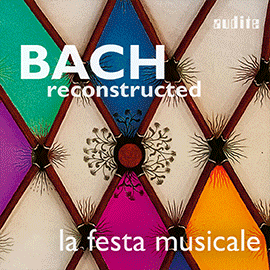At the Red House in Aldeburgh, Suffolk, where Benjamin Britten and his partner Peter Pears lived for almost 40 years, a new exhibition, Queer Talk: Homosexuality In Britten’s Britain, is inaugurated today. It will outline the life and work of Benjamin Britten during the period of social change that led to the 1967 decriminalisation of homosexuality. During most of Britten’s life, homosexuality was illegal and socially stigmatised. The exhibition will focus on two compositions that Britten created against a backdrop of widespread debate on homosexuality: the 1951 all-male opera Billy Budd (1951), and the extended solo vocal work Canticle I ‘My beloved is mine and I am his’ (1947) an open declaration of Britten’s love for Pears and a work they performed together.
Exhibition curator Lucy Walker said: “Unlike other men in their situation, Britten and Pears didn’t face arrest (although there were rumours that Britten was interviewed by Scotland Yard in 1953) and, to some, their relationship was an ‘open secret’, particularly as Britten composed so much and so openly for his male ‘muse’ and on the subject of male love. But before 1967, having been together nearly 30 years, it would have been impossible for them to admit in public they were a couple, and they remained discreet on that matter even after then.”
And she added: “The ‘Queer Talk’ exhibition presents the situation facing Britten and Pears in the 1950s and 1960s, and looks at how Britten in particular kept resolutely quiet on the subject of his private life but at the same time produced a number of works that—to modern eyes—seem to be obviously homoerotic in subject matter. Britten and Pears lived through an extraordinary period of change in social attitudes towards homosexuality, and that change continues today; we hope that visitors to the exhibition will find the circumstances surrounding their personal and creative partnership allow a deeper understanding of their incredible legacy.”
On the website of the Britten-Pears Foundation the situation is explained in these words: « Homosexual acts between men had been illegal since the Criminal Law Amendment Act of 1885, with arrests and prosecutions increasing after World War II. By the mid 1950s, more than 1,000 men were in prison in England and Wales. After a number of high-profile prosecutions, the government set up a departmental committee under Sir John Wolfenden to review the law. The publication of his report in 1957 prompted much debate and a wide range of responses, which the exhibition will depict through contemporary local and national newspaper cuttings, local police reports and television programmes. The exhibition will also feature a 7-metre timeline charting Britten’s significant relationships, his ‘queer’ compositions and the progress of LGBT rights from the 1900s to the present day. »
‘Queer Talk’ will run from the 1 February to 28 October 2017 alongside a programme of special events and activities across Aldeburgh.























